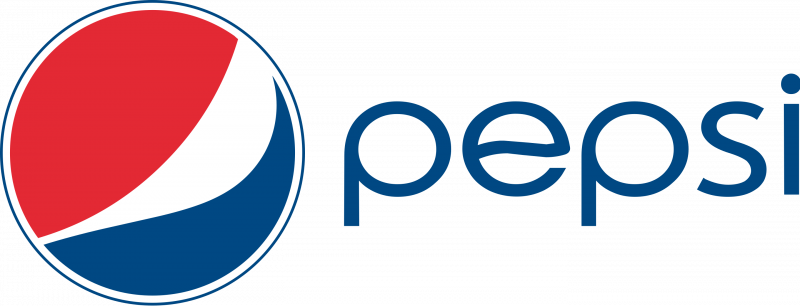Pepsi is a cola-flavored carbonated soft drink and the flagship product of PepsiCo. As of 2023, it held the position of the second most valuable soft drink brand globally, trailing only Coca-Cola. The competition between Pepsi and Coca-Cola has created a historical rivalry known as the "cola wars."
1903: Bradham moves Pepsi bottling to a warehouse
In 1903, Caleb Bradham relocated the bottling operations of Pepsi from his drugstore to a rented warehouse. That year, 7,968 gallons of syrup were sold.
1909: Barney Oldfield endorses Pepsi
In 1909, Barney Oldfield, an automobile race pioneer, became the first celebrity to endorse Pepsi, describing it as "A bully drink...refreshing, invigorating, a fine bracer before a race."
1922: Coca-Cola declines to purchase Pepsi-Cola Company
In 1922, the Coca-Cola Company was offered the opportunity to purchase the Pepsi-Cola Company, which it declined.
1923: Pepsi goes bankrupt, later revived by Charles Guth
In 1923, Pepsi faced financial difficulties, leading to bankruptcy. Later that year, Charles Guth purchased and revived the company, reformulating the Pepsi syrup.
1923: Pepsi-Cola Company enters bankruptcy
In 1923, the Pepsi-Cola Company declared bankruptcy due to financial losses from speculating on sugar prices. Roy C. Megargel purchased the Pepsi trademark, and later Charles Guth acquired Pepsi-Cola's assets.
1933: Coca-Cola declines to purchase Pepsi-Cola Company
In 1933, the Coca-Cola Company was offered the opportunity to purchase the Pepsi-Cola Company, which it declined.
1934: Pepsi introduces 12-ounce bottle during the Great Depression
In 1934, during the Great Depression, Pepsi gained popularity by introducing a 12-ounce bottle. This offering was larger than the 6.5-ounce servings of Pepsi and Coca-Cola.
1936: Pepsi profits double
From 1936 to 1938, Pepsi-Cola's profits doubled.
1938: Pepsi profits double
From 1936 to 1938, Pepsi-Cola's profits doubled.
1940: "Nickel, Nickel" jingle is first recorded
In 1940, Pepsi's advertising campaign introduced the "Nickel, Nickel" jingle, which was first recorded by the Tune Twisters. This campaign promoted the value of purchasing Pepsi's larger bottles for a nickel.
1947: Pepsi hires Edward F. Boyd to lead a team
In 1947, Walter Mack hired Edward F. Boyd to lead a twelve-man team, which created advertising portraying black Americans in a positive light. This included ads with a smiling mother holding a six pack of Pepsi and the "Leaders in Their Fields" campaign.
1950: Support for Pepsi's black sales team fades
In 1950, after Walter Mack left the company, support for Pepsi's black sales team diminished and the team was cut.
1952: Harvey C. Russell Jr. replaces Boyd
In 1952, Harvey C. Russell Jr. replaced Boyd and implemented marketing campaigns targeting black youth in New Orleans, encouraging them to collect Pepsi bottle caps for rewards.
1954: Pepsi's 'Pepsi Day at the Beach' event
In 1954, Pepsi held the "Pepsi Day at the Beach" event in New Orleans, where children could ride rides at an amusement park in exchange for Pepsi bottle caps. 125,000 bottle caps were collected.
1959: Joan Crawford appointed to Pepsi-Cola Board of Directors
In 1959, following the death of her husband Alfred N. Steele, film actress Joan Crawford was appointed to the Board of Directors of Pepsi-Cola.
1961: Pepsi-Cola shortened to Pepsi
In 1961, Pepsi-Cola underwent a name change, becoming simply known as Pepsi. This marked a simplification of the brand's identity.
1965: PepsiCo created
In 1965, PepsiCo was created.
1966: Pepsi introduced in Romania
In 1966, Pepsi was introduced in Romania during Nicolae Ceaușescu's liberalization policies.
1967: Pepsi opens factory in Constanța, Romania
In 1967, Pepsi opened a factory in Constanța, Romania, through a barter agreement exchanging Romanian wine for Pepsi.
1970: Buffalo Bisons Cease Operations
In 1970, the Buffalo Bisons, an American Hockey League team sponsored by Pepsi-Cola, ceased operations.
1972: PepsiCo strikes a barter agreement with the Soviet Union
In 1972, PepsiCo entered into a barter agreement with the Soviet Union, exchanging exportation rights to Stolichnaya vodka for importation and marketing rights to Pepsi. This made Pepsi the first foreign product sanctioned for sale in the Soviet Union.
1973: Joan Crawford leaves the Board of Directors of Pepsi-Cola
In 1973, Joan Crawford left the Board of Directors of Pepsi-Cola, a position she had held since 1959.
1977: Coca-Cola leaves India
In 1977, Coca-Cola exited the Indian market due to new foreign exchange laws requiring majority shareholding by Indian shareholders.
1988: PepsiCo enters the Indian market
In 1988, PepsiCo entered the Indian market through a joint venture with the government of Punjab and Voltas India Limited, marketing Lehar Pepsi.
1989: Billy Joel mentions the Cola Wars in song
In 1989, Billy Joel's song "We Didn't Start the Fire" referenced the rivalry between Pepsi and Coke as the "Rock & Roller Cola Wars."
1989: Pepsi marketing campaign with Madonna cancelled
In 1989, Pepsi cancelled a $5 million marketing campaign featuring Madonna's song "Like a Prayer" following backlash over religious themes in the song's music video.
1989: Pepsi featured in Back to the Future Part II
In 1989, Pepsi was featured in the film "Back to the Future Part II."
1991: Pepsi begins selling in Israel
In 1991, Pepsi started selling soft drinks in Israel, attributing its previous reluctance to economic reasons rather than the Arab boycott.
1991: PepsiCo enters new Romanian market economy
In 1991, after the fall of Soviet communism, PepsiCo entered the new Romanian market economy.
1991: Use of foreign brands allowed in India
In 1991, the use of foreign brands was permitted in India, prompting PepsiCo to buy out its partners.
1992: Pepsi featured in Wayne's World
In 1992, Pepsi was featured in the film "Wayne's World."
1992: Coca-Cola introduced to the Russian market
In 1992, following the dissolution of the Soviet Union, Coca-Cola was introduced to the Russian market, quickly gaining market share due to its perception as representative of the post-Soviet system.
1992: Pepsi Number Fever campaign leads to riots and deaths
In 1992, the Pepsi Number Fever marketing campaign in the Philippines resulted in the accidental distribution of 800,000 winning bottle caps, leading to riots and five deaths.
1994: PepsiCo ends joint venture in India
In 1994, PepsiCo ended its joint venture in India after buying out its partners.
1994: Pepsiman included in Fighting Vipers game
In 1994, Pepsiman was included as a special character in the Sega Saturn version of the arcade fighting game Fighting Vipers by Sega-AM2. His special ability was listed as the ability to quench one's thirst.
1996: PepsiCo launches Pepsi Stuff marketing strategy
In 1996, PepsiCo introduced the Pepsi Stuff marketing strategy. Also in 1996, "Project Blue" was launched internationally, including publicity stunts like a blue Concorde airplane and a banner on the Mir space station.
June 1997: Project Blue tested in the United States
In June 1997, the Project Blue design was tested in the United States before being released that December in preparation for Pepsi's 100th anniversary, at which point the logo began to be referred to as the Pepsi Globe.
1997: Pepsi Sponsors Carolina Hurricanes
Since 1997, Pepsi has been a sponsor of the Carolina Hurricanes of the National Hockey League since the team moved to North Carolina.
1999: Pepsiman PlayStation game released
In 1999, KID developed and released a video game for the PlayStation entitled Pepsiman. The player controls Pepsiman, navigating through various areas to collect Pepsi cans and deliver them to thirsty people. The game developed a cult following despite being a financial failure.
1999: Pepsi Center Naming Rights
In 1999, Pepsi acquired the naming rights to an indoor sports and entertainment facility in Denver, Colorado, which became known as the Pepsi Center.
1999: Pepsi featured in Fight Club
In 1999, Pepsi was featured in the film "Fight Club."
2000: Pepsi overtakes Coca-Cola in sales in Romania
Sometime between 2000 and 2005, Pepsi overtook Coca-Cola in sales in Romania.
2002: Pepsi Sponsors NFL Rookie of the Year Award
Since 2002, Pepsi has sponsored the NFL Rookie of the Year award.
2005: Pepsi overtakes Coca-Cola in sales in Romania
Sometime between 2000 and 2005, Pepsi overtook Coca-Cola in sales in Romania.
2007: Pepsi Sponsors Super Bowl Halftime Show
In 2007, Pepsi sponsored the NFL's Super Bowl halftime show.
October 2008: Pepsi announces logo redesign and product re-branding
In October 2008, Pepsi announced that it would redesign its logo and re-brand many of its products by early 2009.
2008: PepsiCo's U.S. market share reported
According to Beverage Digest's 2008 report, PepsiCo's U.S. market share was 30.8 percent, compared to The Coca-Cola Company's 42.7 percent.
2009: Pepsi, Diet Pepsi, and Pepsi Max use lowercase fonts
In 2009, Pepsi, Diet Pepsi, and Pepsi Max began using all lower-case fonts for name brands. The brand's blue and red globe trademark became a series of "smiles," with the central white band initially arcing at different angles depending on the product.
2013: Pepsi Sponsors Super Bowl Halftime Show
In 2013, Pepsi sponsored the NFL's Super Bowl halftime show.
December 2015: Pepsi sponsorship of Major League Soccer Ends
In December 2015, Pepsi's sponsorship of Major League Soccer ended, with the league signing a deal with Coca-Cola.
2015: Pepsi Perfect Released as Limited Edition
In 2015, Pepsi Perfect, a vitamin-enriched Pepsi variation shown in Back to the Future Part II, was released as a limited-edition drink, with only 6,500 bottles available for $20.15 each.
2015: Pepsi Sponsors UEFA Champions League
In 2015, Pepsi started global sponsorship deals with the UEFA Champions League and the UEFA Women's Champions League, along with its sister brand, Pepsi Max.
April 2017: Pepsi Sponsorship of Major League Baseball Ends
In April 2017, Pepsi's sponsorship of Major League Baseball ended, with the league signing a deal with Coca-Cola.
2017: Pepsi Sponsors Papua New Guinea Basketball Team
In 2017, Pepsi was the jersey sponsor of the Papua New Guinea national basketball team.
October 22, 2020: New Naming Rights Announced for Pepsi Center
On October 22, 2020, the new naming rights for the Pepsi Center in Denver, Colorado were announced, ending Pepsi's naming rights of the venue.
2022: Pepsi Sponsors Super Bowl Halftime Show
In 2022, Pepsi sponsored the NFL's Super Bowl halftime show.
March 2023: Pepsi unveils a new logo
In March 2023, Pepsi unveiled a new logo expected to launch in North America in late-2023, and internationally in 2024 (including 2025 in Colombia). The logo is a modernization of the "vintage" Pepsi logo; accompanying branding elements will also shift from blue to black as their primary color.
March 2023: Pepsi Formula Change in the UK
In March 2023, the United Kingdom version of Pepsi (distributed by Britvic) underwent a formula change, reducing sugar content and replacing it with artificial sweeteners, except where served in restaurants and bars.
2023: Pepsi is the second most valuable soft drink brand worldwide
In 2023, Pepsi was recognized as the second most valuable soft drink brand globally, trailing behind Coca-Cola. This highlights the ongoing "cola wars" between the two beverage giants.
2024: Pepsi unveils a new logo
In March 2023, Pepsi unveiled a new logo expected to launch in North America in late-2023, and internationally in 2024 (including 2025 in Colombia). The logo is a modernization of the "vintage" Pepsi logo; accompanying branding elements will also shift from blue to black as their primary color.
2025: Pepsi unveils a new logo
In March 2023, Pepsi unveiled a new logo expected to launch in North America in late-2023, and internationally in 2024 (including 2025 in Colombia). The logo is a modernization of the "vintage" Pepsi logo; accompanying branding elements will also shift from blue to black as their primary color.
2025: PepsiCo Europe to Slash Sugar in Drinks
Near the end of 2025, PepsiCo Europe plans to reduce the amount of sugar in all their drinks by 25%, by replacing it with the artificial sweeteners Acesulfame K and Sucralose.
Mentioned in this timeline

Basketball is a team sport played on a rectangular court...
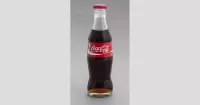
Coca-Cola is a globally recognized cola soft drink produced by...
PlayStation is a video game brand by Sony Interactive Entertainment...
The Union of Soviet Socialist Republics USSR existed from to...
India officially the Republic of India is a South Asian...
Colombia officially the Republic of Colombia is a country located...
Trending
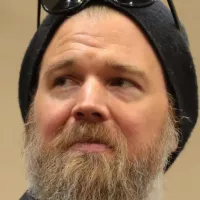
7 minutes ago Ryan Hurst's Kratos Revealed in Prime Video's 'God of War' Series: Cast Updates
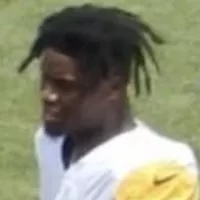
8 minutes ago Cowboys to Franchise Tag George Pickens for $28 Million: A Bold Move

8 minutes ago Rublev dominates Rinderknech, secures Dubai 2026 SFs spot; stats rival Djokovic, Federer.
18 hours ago Dell Projects AI Server Boom to Spur $50 Billion in Sales by 2027
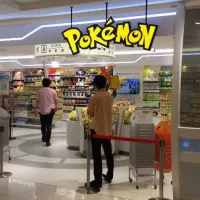
1 hour ago Official Pokémon LEGO Sets Launch Worldwide on Pokémon Day 2026!

1 hour ago Scream 7 Premiere Sees Protests After Melissa Barrera's Firing; Cast Reunites.
Popular

Jesse Jackson is an American civil rights activist politician and...

Barack Obama the th U S President - was the...

Susan Rice is an American diplomat and public official prominent...

XXXTentacion born Jahseh Dwayne Ricardo Onfroy was a controversial yet...

Michael Joseph Jackson the King of Pop was a highly...

Kashyap Pramod Patel is an American lawyer who became the...
